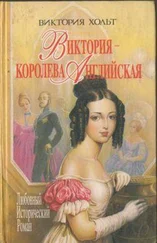Виктория Холт - Daughter of Deceit
Здесь есть возможность читать онлайн «Виктория Холт - Daughter of Deceit» весь текст электронной книги совершенно бесплатно (целиком полную версию без сокращений). В некоторых случаях можно слушать аудио, скачать через торрент в формате fb2 и присутствует краткое содержание. Жанр: Исторические любовные романы, на английском языке. Описание произведения, (предисловие) а так же отзывы посетителей доступны на портале библиотеки ЛибКат.
- Название:Daughter of Deceit
- Автор:
- Жанр:
- Год:неизвестен
- ISBN:нет данных
- Рейтинг книги:5 / 5. Голосов: 1
-
Избранное:Добавить в избранное
- Отзывы:
-
Ваша оценка:
- 100
- 1
- 2
- 3
- 4
- 5
Daughter of Deceit: краткое содержание, описание и аннотация
Предлагаем к чтению аннотацию, описание, краткое содержание или предисловие (зависит от того, что написал сам автор книги «Daughter of Deceit»). Если вы не нашли необходимую информацию о книге — напишите в комментариях, мы постараемся отыскать её.
Daughter of Deceit — читать онлайн бесплатно полную книгу (весь текст) целиком
Ниже представлен текст книги, разбитый по страницам. Система сохранения места последней прочитанной страницы, позволяет с удобством читать онлайн бесплатно книгу «Daughter of Deceit», без необходимости каждый раз заново искать на чём Вы остановились. Поставьте закладку, и сможете в любой момент перейти на страницу, на которой закончили чтение.
Интервал:
Закладка:
Victoria Holt
Daughter of Deceit
LONDON
Desiree
I often wonder how different my life might have been if Lisa Fennell had not made her dramatic entry into it; and I marvel that if people had not been in a certain place at the same moment they might never have been aware of each other’s existence and their lives would have taken an entirely different course.
I cannot believe that there was another household like ours in the whole of London—or England, for that matter. I only knew that I was lucky to be part of it because it was dominated by the light-hearted, wildly unconventional, inimitable and altogether adorable Desiree.
At that time social status was held to be of the greatest importance in all classes of society and protocol in the servants’ quarters was as rigidly adhered to as it ever was in higher circles. Not so by Desiree. Carrie, the tweeny, was given the same treatment as Mrs. Crimp, the housekeeper. Not always with Mrs. Crimp’s approval. But Desiree ignored that.
“Hello, Carrie, how goes it with you today, love?” she would ask when she met Carrie about the house. Everyone was “love” or “dear” to Desiree. Carrie would squirm with delight.
“I’m all right, Miss Daisy Ray,” she would say. “And how’s yourself?”
“Bearing up. Bearing up,” Desiree would say with a grin; and if she was aware of Mrs. Crimp’s disapproving look, she gave no sign.
Everyone in the household loved Desiree—apart from two of the governesses who had come when I was five years old to teach me the rudiments of education. One left after a few months, because there were always late-night comings and goings to and from the house and she needed her rest; the other went off to teach an earl’s daughter, which was more suited to what she had been brought up to expect.
But most people, once they had accepted that this household was like no other, succumbed to Desiree’s charm—Martha Gee with a sort of exasperated tenderness; Mrs. Crimp with a few tut-tuts and a certain twist of the lips and a muttered “What next? I wonder”; Jane, the parlourmaid, with the utmost eagerness, because in her dreams she hoped to be another Desiree; and Carrie with unadulterated delight, because she had never known anyone who made her feel important before; while Thomas, the coachman, was loyally devoted, in the belief that anyone as famous as Desiree might act a little strangely if she felt like it.
As for myself, she was the very centre of my life.
I remember one occasion when I was about four years old. It was night and I awoke, probably aroused by the sounds of laughter coming from below. I sat up in bed listening. The door which connected my room with the nanny’s was kept open. I crept to it, saw that she was sleeping deeply, put on my dressing gown and slippers, and descended the staircase. The laughter was coming from the drawing room. I reached it and stood outside listening.
Then I turned the handle and looked in.
Desiree, in a long flowing gown of lavender-coloured silk, was seated on the sofa; her golden hair was piled high on her head; there was a black velvet band round it in which stones glittered. Every time I saw her I was struck by her beauty. She was like the heroine of one of the fairy stories which I loved, but chiefly I thought of her as Cinderella after she had gone to the ball and found her prince—only Desiree had found several.
A man sat on either side of her and another was standing up, leaning over her, laughing. Their black jackets and white shirt-fronts made a pleasant contrast to the lavender silk. They were silent as I entered and they all looked at me. It was like a tableau.
“Is this a party?” I asked, implying that if it was I wanted to be part of it.
Desiree held out her arms and I ran into her sweet-smelling embrace.
She presented me to the company. I had become aware by this time that there were others in the room besides the three men and herself.
She said: “This is my treasure, Noelle, because she was born on Christmas Day—the best Christmas present I ever had.”
I had already heard it. She had told me: “You were born on Christmas Day, so you were called Noelle, which means birthday … Christmas birthday.” She added that I was specially honoured because I shared my birthday with Jesus.
What concerned me at the moment was that it was a party and I had joined it.
I remember sitting on Desiree’s lap while she, with mock seriousness, introduced me to certain members of the company.
“This is Charlie Claverham, and this is Monsieur Robert Bouchere … and this is Dolly.”
They were the three I had noticed gathered about her when I entered the room. I studied them—in particular Dolly, because it seemed such a strange name for a man to have. He was rather square in shape, with fair whiskers—slightly gingerish—and a strong aroma which, when I became experienced in such matters, I recognized as a mingling of expensive cigars and whisky. I also learned that he was Donald Dollington, actor-manager, known irreverently in theatrical circles as Dolly.
They all made much of me, asking questions and seeming amused at the answers, which made me feel that it was a wonderful party until I fell asleep and was vaguely aware that Desiree was carrying me back to my bed. I remember being disappointed when I woke up next morning to find that the party was over.
The house was near Drury Lane, handy for the theatre, which was essential. It seemed enormous to me when I was very young—an exciting place with stairs leading down to the basement and then from the ground floor up to the fourth. There was always something exciting to be seen from the nursery windows, over which Desiree had had bars put, lest I fall out.
There were people selling things from wheelbarrows or from trays on straps round their necks—hot pies, lavender, fruit, flowers, pins and ribbons; then there were carriages and hackney cabs taking people to and from the theatres. I loved to watch them.
When I was six years old, Miss Mathilda Grey came to teach me. This was after the other two governesses had left to find more suitable employment. She must have been a little bewildered when she first came, and might have gone the way of the other two but for the fact that she wanted to become an actress. “Not like your mother,” she pointed out. “Not just singing and dancing in light comedies, but a real actress.”
I studied Mathilda Grey. She had scarcely the physique for a dancer. My mother was rather tall and she had what they called an hourglass figure. Miss Grey was short and dumpy and all she could manage to do was warble a little out of tune. But Lady Macbeth and Portia were not called upon to sing and dance. However, her ambitions, misguided though they might have been, prompted her to stay in a post which brought her a little nearer to the theatrical world than she could otherwise have hoped for.
But after a while she became reconciled and, I think, enjoyed being part of the household.
The most important one was Martha Gee, my mother’s dresser —but more than that; and she took charge of us all as well as of my mother. She was a large woman with keen dark eyes which missed little and brown hair drawn severely back into a large knob; she was always dressed in black. She was fond of reminding us that, having been born within the sound of Bow Bells, she was without doubt a cockney. She was sharp, shrewd, taking, as she said, “nothing from nobody” and always “giving as good as she got … and a little bit more.”
She had known my mother when she had been a member of the chorus, and if Martha Gee could not spot talent when she saw it, she did not know who could. She had decided to take my mother under her wing and guide her where she should go; and it seemed that this was exactly what she had done. Martha was about forty years of age. She knew her way around and had seen a bit of life. She told us often that she belonged to the theatre and knew all the tricks that some of them got up to, which offers to be wary of and which you seized with both hands. She bullied my mother as she did all of us, but she made us feel that it was for our own good and that Martha knew best. She treated my mother as though she were a wayward child. My mother liked it and used to say, “What would I do without Martha?”
Читать дальшеИнтервал:
Закладка:
Похожие книги на «Daughter of Deceit»
Представляем Вашему вниманию похожие книги на «Daughter of Deceit» списком для выбора. Мы отобрали схожую по названию и смыслу литературу в надежде предоставить читателям больше вариантов отыскать новые, интересные, ещё непрочитанные произведения.
Обсуждение, отзывы о книге «Daughter of Deceit» и просто собственные мнения читателей. Оставьте ваши комментарии, напишите, что Вы думаете о произведении, его смысле или главных героях. Укажите что конкретно понравилось, а что нет, и почему Вы так считаете.












